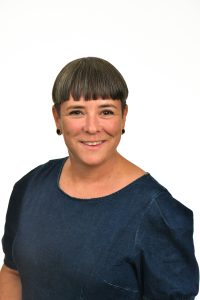Introducing TCAP and our new curriculum resource marketplace project
Rebecca Cairns

Macbook pro on brown wooden table by Samantha Borges, Unsplash License
Welcome to the TCAP blog
Issues related to curriculum, assessment and pedagogy constantly make the news. In recent weeks headlines from South Australia indicate the Education Department is reviewing curriculum to improve how children learn about periods, as menstruation increasingly commences at an early age. In Victoria, academic experts are being called upon to help reduce the number of errors in senior secondary exams. Across the country, perspectives on how to best teach reading continue to be debated. Curriculum, assessment and pedagogy attract public debate because contemporary learning, and the conditions in which it occurs, is constantly changing. As it transforms, our research group considers how research and practice around curriculum, assessment and pedagogy can evolve with it.
Welcome to the Transforming Curriculum, Assessment and Pedagogy (TCAP) Research Group’s blogsite and inaugural post. TCAP is one of the four research groups in the Deakin School of Education, comprised of 18 academics and 10 HDR students. Details about our research areas and the team are available on our website.
TCAP engages with diverse voices, knowledges and perspectives to participate critically and creatively in education policy and practice. Our research is undertaken across early childhood, primary, secondary and vocational education and training, higher education and community settings. Disciplinary and transdisciplinary perspectives inform our approach and we seek to contribute to national and transnational debates to create resilient and inclusive education systems.
One of our current projects investigates some hot topics in education right now: the implications of outsourcing lesson planning in response to increased teacher workloads and the impact that digitisation and AI have on teachers’ work. These issues raise important questions about how the proliferation of digital resources and lesson plans potentially supports the work of teachers but also have far-reaching implications for the teaching profession and students’ learning. With governments and education departments keen to capitalise on digital and AI tools and provide teachers with ‘high quality’ resources in order to address workload pressures, it is also critical to examine how this is affecting education policy and curriculum.
Gone are the days when teachers relied on textbooks and kept teaching and learning resources in overflowing filing cabinets or bookshelves and were limited to sharing them within their school communities or local networks. Today teachers have access to a plethora of resources– everything from the online sharing platforms like Teachers Pay Teachers, Tik Tok or Pinterest, to hubs of curriculum aligned resources like Ochre Education here in Australia. The fact that teachers can make money creating and selling teaching materials as a “side hustle” has also spurred debate. Most recently, AI lesson generators and AI teacher assistants are attracting the attention of educators around the world.
While researchers in the USA are leading the way with research in this space, in Australia there is very little research yet. Our project, Navigating the Curriculum Resource Marketplace, seeks to find out about these shifts within the Australian context so we can better understand how different actors influence the supply and demand of materials within the resource marketplace and how this is shaping policy responses and importantly, teachers’ curriculum practices. Although there is much talk about the importance of providing ‘high-quality’ resources and lesson plans to help improve educational equity, improve student outcomes and save teachers time, we are interested in finding out who is making these claims, who is creating the resources and how ‘high-quality’ is measured and understood. Our goal is to work with a range of resource creators and users–particularly educators–to develop a resource quality framework that can assist in evaluating these curriculum materials and navigating this rapidly shifting space.
The Chief investigators in this project are TCAP members: Dr Rebecca Cairns, Associate Professor Michiko Weinmann, Associate Professor Lucinda McKnight and Dr John Cripps Clark. The project will also draw on the expertise of other TCAP members through learning area case studies, including English and literacy; Maths and numeracy; and Arts education.
We look forward to providing updates on the project on this blog. Readers can also expect posts about the latest research from members of this research group and commentary on current issues related to curriculum, assessment and pedagogy.
AI statement: Generative AI tools have not been used in the writing of this post.
Dr Rebecca Cairns is a senior lecturer in the Deakin School of Education and co-convenes the Transforming Curriculum and Assessment Research Group. Rebecca’s curriculum inquiry research focuses on decolonising approaches, history education and studies of Asia.
